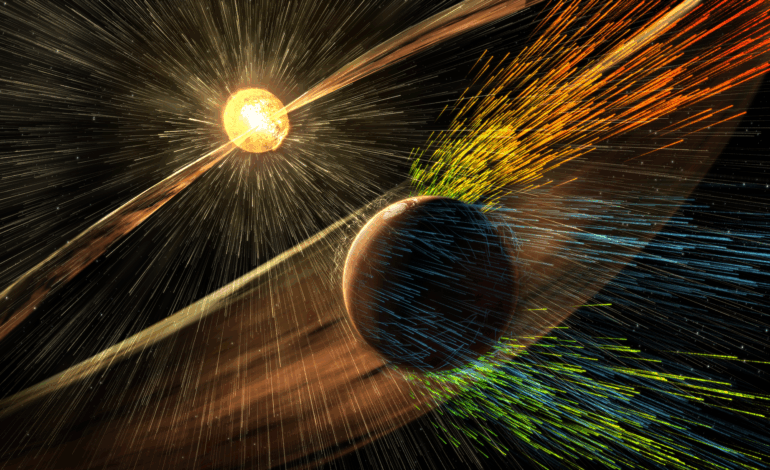Planetary Scientist Advocates for Space Exploration’s Importance

Shannon Curry, a prominent planetary scientist, is advocating for the importance of space exploration, drawing on her experiences with the Mars Atmosphere and Volatile EvolutioN (MAVEN) mission. Since joining the University of Colorado Boulder in 2024, Curry has focused on understanding the mysteries of Mars and its atmosphere, which is significantly thinner than that of Earth.
Exploration and Educational Impact
In 2022, NASA appointed Curry as the principal investigator for the MAVEN mission, making her the youngest individual to lead such a significant planetary science initiative at the agency. The MAVEN spacecraft, which began its mission in 2014, aims to uncover the reasons behind the drastic atmospheric changes on Mars. Currently, Mars features a thin atmosphere that is approximately 100 times less dense than Earth’s.
Curry emphasizes that missions like MAVEN are vital not only for scientific discovery but also for training the next generation of scientists. She aims to inspire students and early-career researchers, who will form what she refers to as the “Artemis generation.” This generation is expected to play a crucial role in future space exploration, including missions to Mars.
“Understanding other atmospheres is a fundamental piece of understanding our own origins,” Curry stated. She believes that exploring other planets can provide insights into Earth’s own history and the conditions necessary for life.
Comparative Planetary Science
Curry draws parallels between Earth, Mars, and Venus, noting that they all formed under similar conditions yet took drastically different evolutionary paths. Three billion years ago, Mars likely resembled Earth, with liquid water flowing across its surface. Today, it is a barren landscape, while Venus is enveloped in thick clouds of carbon dioxide and experiences surface temperatures reaching up to 900 degrees Fahrenheit.
Recent MAVEN data suggests that streams of charged particles from the sun have gradually stripped Mars of its atmosphere, rendering it incapable of sustaining surface water. This revelation has only intensified scientific inquiry, leaving researchers with more questions than answers.
Violet Shirley, an undergraduate researcher at CU Boulder, collaborates with Curry on the MAVEN mission. She studies how solar phenomena, such as coronal mass ejections, affect Mars. In May 2024, one of the largest solar storms in decades struck Mars, releasing radiation levels equivalent to 30 chest X-rays on the planet’s surface. Such findings underline the need for understanding these interactions, especially as humanity plans to send astronauts to Mars in the future.
Future Challenges and Opportunities
Despite the promising avenues of research, Curry expresses concern over potential funding cuts to NASA. The proposed 2026 budget from the White House includes significant reductions to NASA’s budget and suggests canceling the MAVEN mission entirely. This could have dire implications for the aerospace industry, which employs approximately 2.2 million people in the United States.
Curry highlights the importance of maintaining a robust space exploration program, not just for scientific advancement but as a crucial element of American identity. She advocates for continued investment in space initiatives, believing they foster unity and inspire new generations to explore the cosmos.
“On a fundamental level, exploration has been the thing that has set humanity apart,” Curry remarked. “We can harness our intellectual capacity and do things no one ever thought possible when we do it together.”
As Curry and her team continue their work with MAVEN, they remain committed to uncovering the secrets of Mars and inspiring future scientists to look to the stars. The lessons learned from studying other planets are integral to understanding our own and ensuring a sustainable future for exploration.






